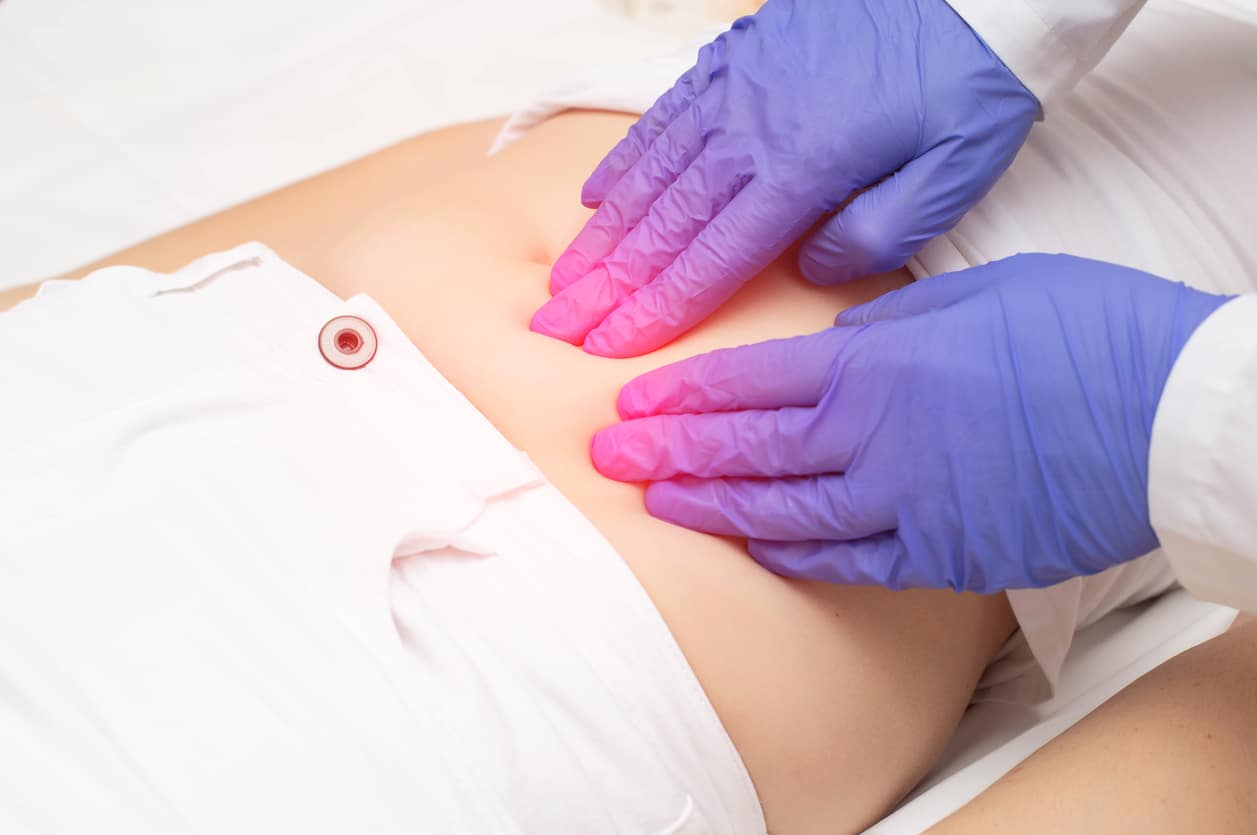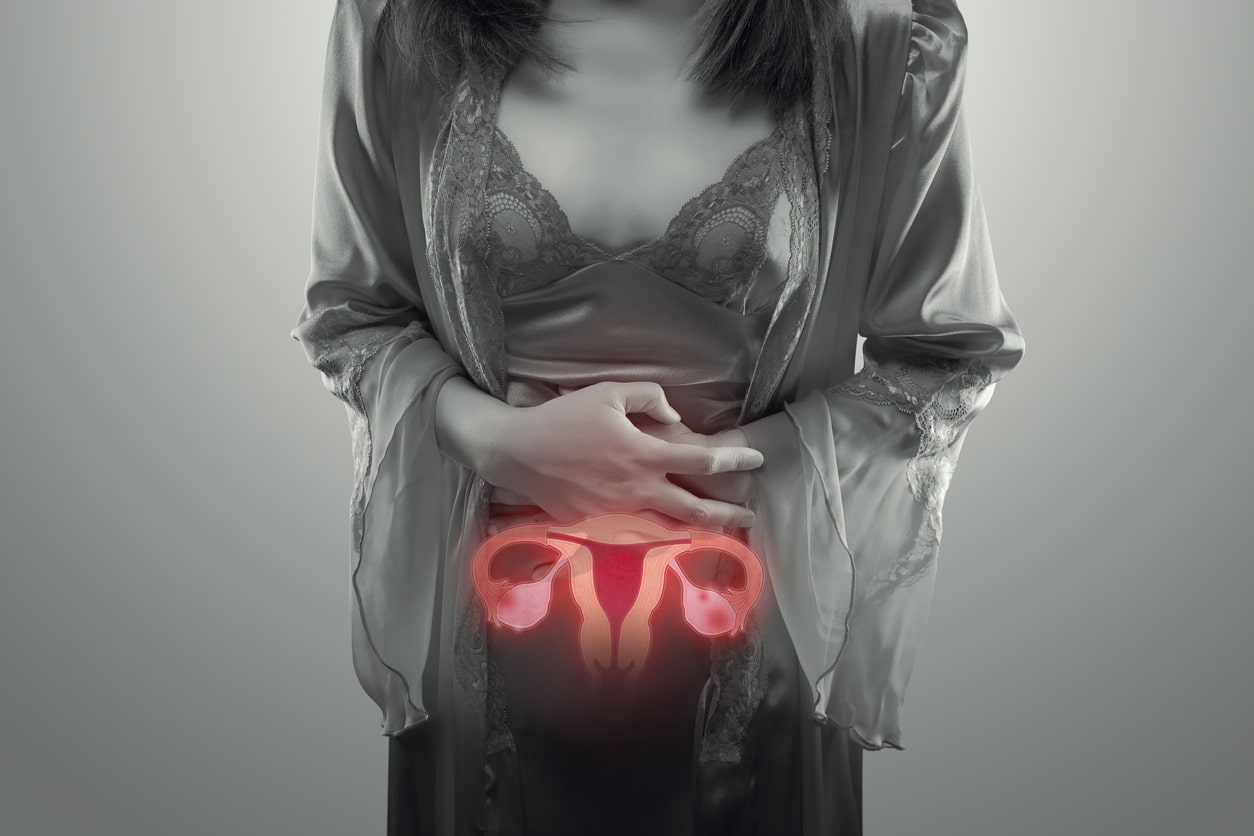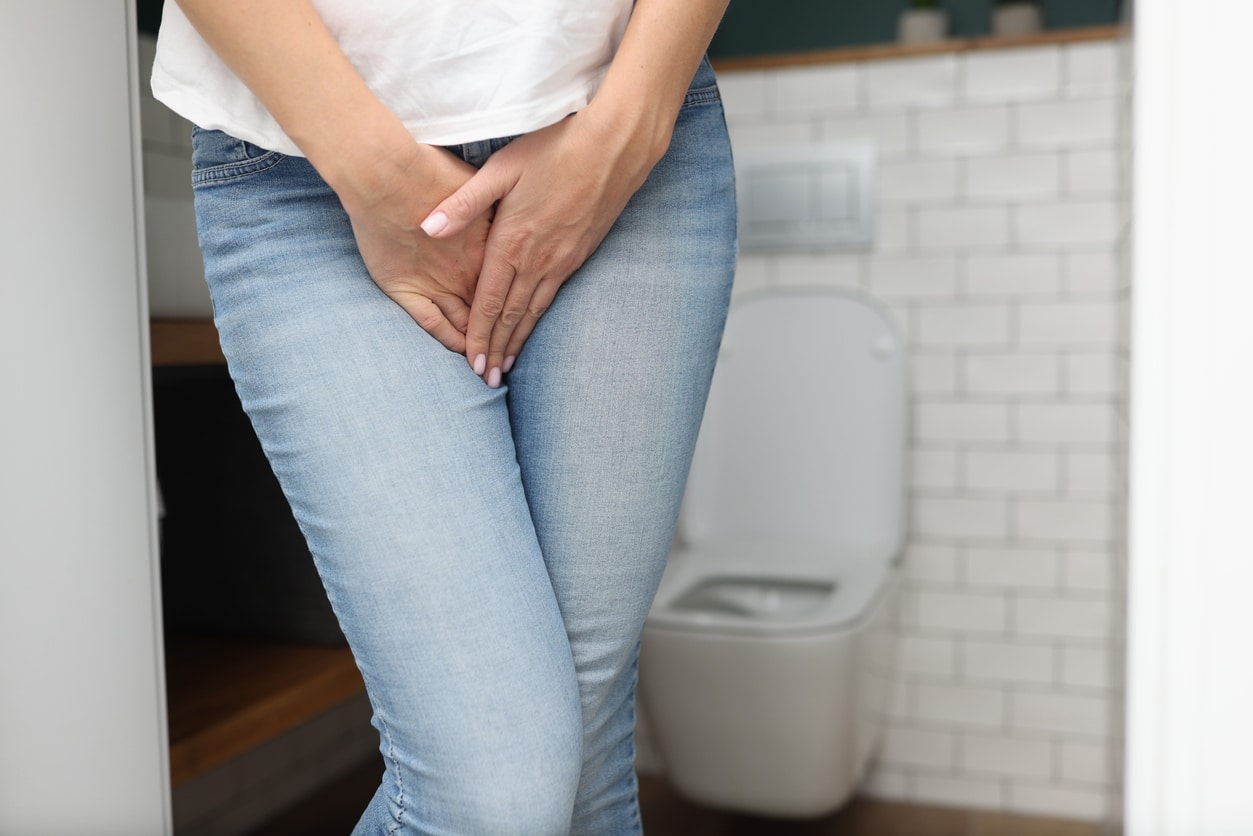An alternative to traditional surgery, a robotic hysterectomy is a cutting-edge technology utilizing the aid…

Ovarian Cysts 101: Causes, Symptoms, & Treatment
If you encounter pelvic pain, abdominal pressure, or bloating, it can be easy to discount your discomfort or simply hope it goes away. Many of us wait to seek treatment until we can’t ignore the symptoms, but when it comes to ovarian cysts, you’d rather be safe than sorry.
To help you discern symptoms of ovarian cysts and regular period cramps or stomach aches, The Endometriosis Treatment Center of America discusses the symptoms, causes, and treatment for ovarian cysts. Ovarian cysts are usually harmless, but if you experience unusual pelvic pain or discomfort, we encourage you to seek professional help.
What Are the Symptoms of Ovarian Cysts?
Some ovarian cysts do not cause any symptoms at all, and some may go away on their own. However, this may not be the case if you have a large cyst. You may feel a dull or sharp ache with a larger cyst below your belly button.
Some other symptoms include:
- Bloating
- Pelvic pain
- Heaviness in your abdomen
- Cramping
You may have a functional cyst if you experience heightened pain during your menstrual cycle. Some other types of ovarian cysts include dermoid and cystadenoma, but these are much less common than functional cysts. If any of these symptoms are sudden or severe, or you experience fever or vomiting along with these symptoms, don’t hesitate to seek medical attention.
How Do Ovarian Cysts Form?
Your ovaries will grow small follicles every month to help your body to produce estrogen. When you ovulate, these follicles open and release eggs. After this happens, the follicle shrinks and leaves behind a corpus luteum. Sometimes a follicle cannot release the egg and does not discharge its fluid.
When this happens, the follicle cannot shrink, and it can swell. The swelling creates a cyst, and the disruption causes your symptoms. Sometimes your body can itself, and they disappear in a few months. But, other times, the cyst may become twisted or rupture, which can cause serious health risks like extreme bleeding, infection, or sepsis.
What Is Ovarian Cyst Treatment?
If your cyst is functional, many doctors take the wait-and-see approach. You’ll wait a few weeks and come back for an ultrasound to ensure the cyst has resolved on its own. It can take anywhere from 4 weeks to 3 months for a cyst to disappear, but you should feel relief from your symptoms as it heals.
If you have been through menopause, your doctor may recommend an ultrasound and blood tests since older women have a higher risk of developing ovarian cancer. From there, your doctor can create a treatment plan for you.
Do You Need Surgery for Ovarian Cysts?
You may need to get this surgically removed if you have a persistent ovarian cyst, one that is large, or you’re experiencing severe symptoms. However, surgery is a last-case option and is only recommended if tests show that it may be cancerous. If your doctor advises this, they will provide ample information about the procedure and recovery.
Don’t Hesitate to Seek Medical Attention for Ovarian Cysts
We understand it can be uncomfortable to speak with a medical professional about pelvic pain, cramping, and other symptoms of ovarian cysts. However, there’s nothing to be wary of at the Endometriosis Treatment Center of America. With years of experience, our team of experts is skilled in diagnosis and treating cases of ovarian cysts. If you’re facing any symptoms of an ovarian cyst, reach out to a medical provider sooner rather than later.
Your Trusted Endometriosis & Pelvic Pain Treatment Experts
Whether you’re suffering from ovarian cysts, endometriosis, painful intercourse, pelvic pain, or any other condition—the Endometriosis Treatment Center of America is here to help. Our team provides a comfortable, stress-free environment so you always feel at home during your appointment. Call us at (248) 397-9129 or contact us online today!



